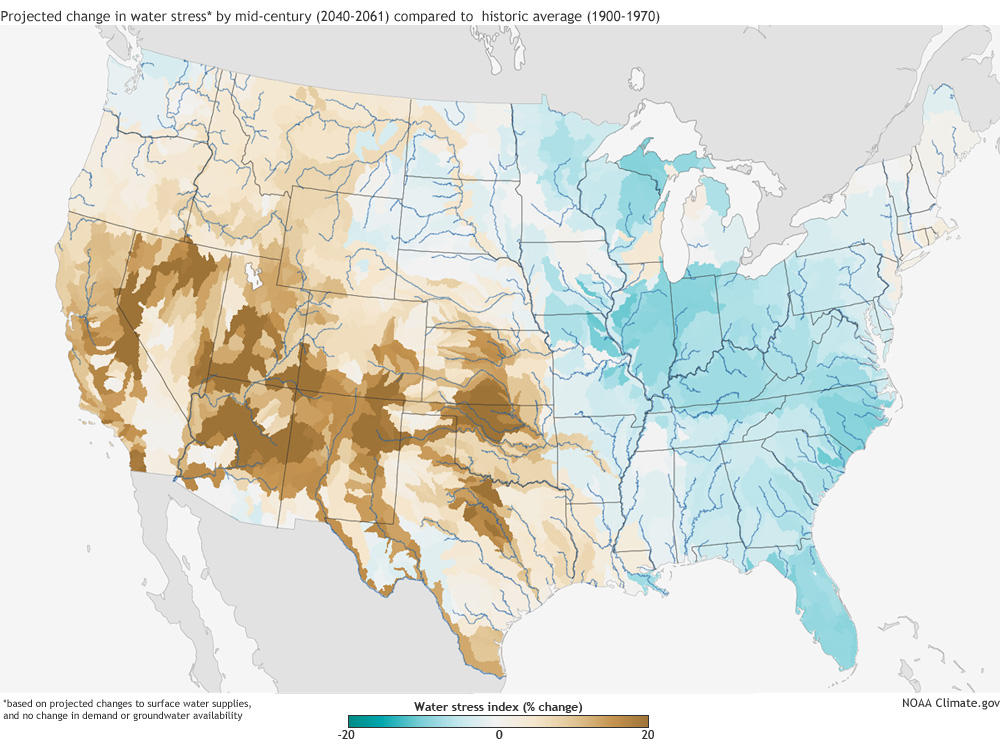
Caption
Changes in precipitation, temperature and evaporation rates due to rising carbon dioxide concentrations are projected to increase surface water supplies in most Eastern watersheds (shades of blue) but decrease them in the West (brown). These patterns may be amplified or weakened depending on population growth and groundwater availability.
Credit: National Oceanic and Atmospheric Administration

